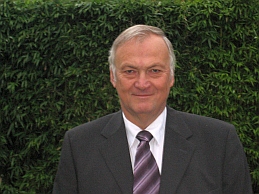
WASCON is the reference international conference on the use of alternative materials (secondary raw materials) in constructions. The first WASCON conference was launched in 1991 by a group of scientists from Europe and North America. At that conference it was decided to found ISCOWA, the International Society for Construction with Waste materials. This initiative started an important movement around waste recycling. Indeed, in the same year the technical committee TC 292 of CEN, the European Committee of Standardisation, was created. CEN/TC 292 has standardized all leaching tests and procedures related to the European landfill and recycling regulations and the assessment of the behaviour of materials in civil engineering scenarios. The WASCON conferences became and remain the main activity of ISCOWA, and were from then on held every three years, i.e. 1991, 1994, 1997, 2000, 2003, 2006 and 2009.
At WASCON 2009 in Lyon, where I was selected by the board of ISCOWA as its new chairman, it was announced that WASCON 2012 should be organised in Gothenburg, Sweden, in collaboration with SGI, the Swedish Geotechnical Institute, a governmental agency and expert body that since the eighties plays a leading role in research and applications of alternative materials in construction. This year is the first time that WASCON takes place in one of the Scandinavian countries, which all made large and numerous contributions to the field.
On this memory stick you will find the proceedings of WASCON 2012, containing 102 papers or extended abstracts of the presentations, grouped in eight subject areas: New alternative products and production methods; Leaching tests; Technical properties and Quality control; Environmental impact, life cycle and risk analysis; Durability, ageing and long-term performance; Case studies and demonstration projects; Cradle-to-cradle; Policies, legal incentives and barriers to recycling. These papers are submitted by authors from 20 countries. The number, the variety and the quality of the papers indicate that WASCON still responds to a real need. I hope that these proceedings, a new extension of the large library of papers presented at WASCON conferences (previously as books or CD-ROMs and now as memory stick), will provide inspiration for your research, for developing new products, for finding partners for your projects, etc.
Materials recycling is enjoying more and more support e.g. from the EC (Europe as a recycling society). It is indeed clear that a sustainable society cannot be realised with an unsustainable construction sector. To date very much interest and effort is rightfully devoted to energy (saving energy by insulation, construction of passive houses, increasing energy efficiency, production of renewable energy, etc.). We believe that recycling of materials is of similar importance. Moreover, producing building materials from recycled materials, instead of from virgin raw materials may also save energy and may emit less greenhouse gases, a good example being the production of cement or concrete using ashes, construction & demolition waste, etc. The future recycling society is however not possible without respect for environment and safety. The mission of ISCOWA "to promote and coordinate the exchange of information regarding the environmental and technical aspects of construction with industrial by-products" is still as relevant as two decades ago. We consider it also a positive sign that about 10% of the papers are from developing countries. We hope that these countries may profit also from the large amount of experience already gathered.
We hope that you will appreciate the scientific program and enjoy the social program with the receptions, the City tour and the boat trip to Långedrag and the Banquet. Maria Arm and her colleagues from SGI did most of the work and succeeded in arriving at an almost definitive program about two months before the conference.
Finally, Gothenburg is a wonderful cultural and historical city with a friendly atmosphere that makes you longing to return. I hope that the weather, which was not very encouraging in 2012 in Europe so far, will encourage WASCON 2012, an initiative that will hopefully contribute to sustainable development and mitigate climate change.
Prof. Carlo Vandecasteele,
University of Leuven
Chairman of ISCOWA